The real estate business welcomes autumn with subdued but calm moods. This is indicated by the latest survey of members of the Lithuanian Real Estate Development Association (LNTPA), conducted at the beginning of September. Rising interest rates, leading to declining demand, and decreasing housing affordability indicators are among the key challenges that real estate market representatives are convinced they will have to overcome in the near future.
The Classic Financing Choice
The LNTPA member survey shows that real estate developers currently rely on traditional financing sources to fund their projects. 84% of all respondents stated that they turn to central banks for financing. Following that are investment funds (25% of all respondents), bonds (21%), targeted financing (17%), and credit unions (8%). It is important to note that some developers use multiple financing instruments at different project stages, depending on the project’s status and capital appetite.
A majority of real estate developers are facing an increasingly stringent stance from banks regarding financing for real estate projects—45% of all respondents. 41% say that the banks’ positions remain unchanged or almost unchanged. Nearly one-fifth (23%) of real estate developers noted a more detailed examination of projects and an extended decision-making period by banks. 9% of respondents faced a negative response from banks when seeking financing for their real estate projects.
“Most real estate developers see that banks are currently favorably disposed towards real estate development financing, but they prioritize safe, highly liquid projects that ensure cash flows and are developed by financially strong developers,” says Mindaugas Statulevičius, President of LNTPA.
To Continue, Postpone or Halt?
Slightly more than one-fifth of respondents (21%) plan to stick to their planned strategies and continue or start new real estate projects in the second half of this year. 17% of all respondents are inclined to proceed with project implementation but with certain conditions: strategies will be reviewed, more attention will be given to saving, income and expense balances, and unprofitable activities will be discontinued. Approximately 13% of all respondents will either halt or significantly reduce the scope of their project implementation. Some real estate developers mentioned that they are exploring alternative investment directions in foreign markets.
Challenges for Buyers
The majority of respondents, 70% of LNTPA members, identified rising interest rates as the main obstacle for residents to acquire their own homes. According to M. Statulevičius, some real estate developers humorously describe the situation as follows: “The bank won’t grant me a loan of 700 euros per month, so I have to pay 900 euros in monthly rent.”
Movements of Real Estate Prices
63% of all surveyed real estate developers believe that real estate prices will remain stable by the end of the year. Only 21% of real estate developers foresee a slight downward price correction. About 13% of respondents see a mild prospect of price growth.
“We see that the majority of respondents from LNTPA hold the position that there are currently no indications of price decline, but short-term ‘discount wars’ and ‘promotion offers’ in certain projects are very likely,” commented the LNTPA leader on the survey results.
Solutions for the Real Estate Market Situation
According to LNTPA members, the reduction of bureaucratic and regulatory procedures would have the greatest impact on favorable changes in the real estate market, as mentioned by 35% of all respondents. They consider excessive and often unjustified legal processes as the biggest obstacle to sustainable real estate market development.
A quarter of LNTPA members (25%) would see improvement if the state actively contributed to improving the situation by implementing a compensatory interest rate model or subsidizing initial contributions for first-time homebuyers. The same percentage of LNTPA members believes that favorable changes in the sector would be driven by a general economic recovery.
10% of respondents believed that increased interbank competition would be a factor contributing to a positive change in the real estate market. Some respondents also mentioned the end of the conflict in Ukraine as a factor that could favorably impact the real estate market.
“In summarizing the survey results, it is evident that the most significant challenges today are related to the rising cost of borrowing for both businesses and homebuyers. Expensive financing is a key factor driving current tensions and subdued moods in the real estate market, along with declining housing affordability indicators. Solutions need to be found, and responsibility must be shared by government institutions, lending institutions, and businesses themselves. Comprehensive measures and mutual dialogue in search of effective solutions should be priorities on the agenda of market participants. Housing affordability should become a key topic for the current government, the leadership of the Ministry of Environment, and local government leaders. We also plan to formulate proposals for all future parliamentary election participants to rally decision-makers and implementers towards the common goal of affordable housing. The need for housing and the opportunity to acquire it are legitimate and justified aspirations for every individual,” says Mindaugas Statulevičius, President of LNTPA.
